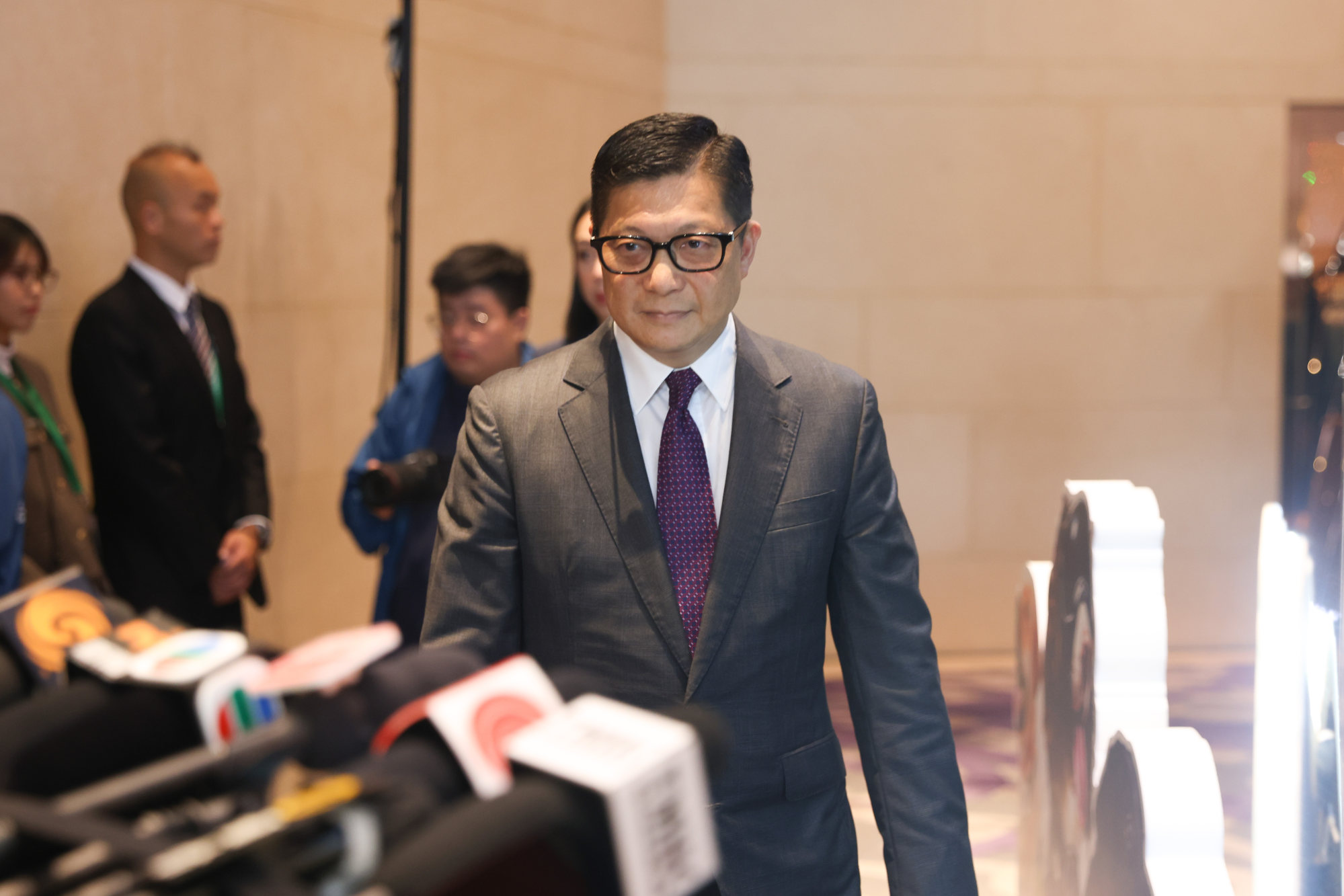
Hong Kong security chief slams top American envoy in city over burner phone claims, accuses US of ‘illegal surveillance’ and hits back at Article 23 critics
- Security minister Chris Tang points to overwhelming support in public consultation of proposed law, issuing strongly worded rebuke to UK Foreign Secretary David Cameron
- ‘Illegal surveillance is an expertise of the US,’ Tang says, hitting back at claims by country’s top envoy in city over American firms using burner phones locally
Secretary for Security Chris Tang Ping-keung on Tuesday pointed to the overwhelming support expressed during a one-month public consultation for the coming legislation, which the city is required to pass under Article 23 of the Basic Law, Hong Kong’s mini-constitution.
“[The results] showed that most Hong Kong residents support the Article 23 legislation,” he said, referring to the proposed bill which will introduce five new types of offences – treason, insurrection, sabotage, external interference, and theft of state secrets and espionage.

Providing slightly updated figures, Tang said 97 of the 13,489 submissions – or less than 1 per cent – opposed the legislation, with about half of them being anonymous or without any clear attribution. Previous official figures showed that 93 out of 13,147 submissions had opposed the law in the consultation that ended last Wednesday.
The United States and United Kingdom have voiced concern over the protection of rights and freedoms under the proposed legislation.
US Consul General Gregory May earlier said the legislation was “the last thing Hong Kong needs”, adding that some American companies had to use burner phones and laptops when visiting the city due to connectivity issues and data security concerns.
Tang hit back on Tuesday, accusing Washington of having double standards and carrying out illegal surveillance.
“I would like to point out that illegal surveillance is an expertise of the United States, as it even intercepts conversations of leaders of other countries,” Tang said.
“If that’s the case, should all businesspeople conducting business in the United States switch to using these disposable phones?”
Tang also slammed British Foreign Secretary David Cameron for his comparison of Hong Kong and the UK, citing the United Nations Charter under which countries and regions can develop their own social systems suitable for their conditions.
Cameron earlier said that British national security laws were subjected to full scrutiny by the democratically elected House of Commons, thus ensuring democratic legitimacy.
“He [is basically] saying that we can have the law, but you can’t because our system is superior to yours,” Tang said. “Every individual is equal and deserving of respect. Don’t assume that you are living in an imperial era. You are not superior to others.”
Tang also hit out at fugitive Ted Hui Chi-fung, saying he was “despicable, and lacking integrity and moral boundaries” after the former lawmaker called for police officers and judicial workers involved in his court cases to be added to a sanctions list.
“I believe Hong Kong people are ashamed of his actions and he is despicable without parallel,” Tang said.
Hong Kong launched the 30-day consultation period for the controversial home-grown legislation at the end of January. A full draft of the proposed law has yet to be completed.
Tang said a quarter of the 48 submissions opposing the bill and which had clear attributions were from “anti-China forces”, “fugitives who have absconded to other countries” or individuals who shared the same names with those currently remanded for national security-related offences.
Tang named Britain-based Hong Kong Watch, which had called for sanctions against the city and Beijing, as well as Amnesty International, which the minister said had “falsely accused and slandered” the local authorities of detaining “so-called human rights defenders”.
Asked whether the government would move the bill for a first reading in the coming Legislative Council meeting on Wednesday, Tang merely said authorities would consolidate the results of the consultation exercise and report to the joint panels on security and administration of justice.
The government will brief the legislature on details of the submissions during a joint meeting with two Legislative Council panels and a dedicated subcommittee on Wednesday afternoon.
The subcommittee is expected to meet city officials again on Thursday morning, but no agenda has been released yet.

